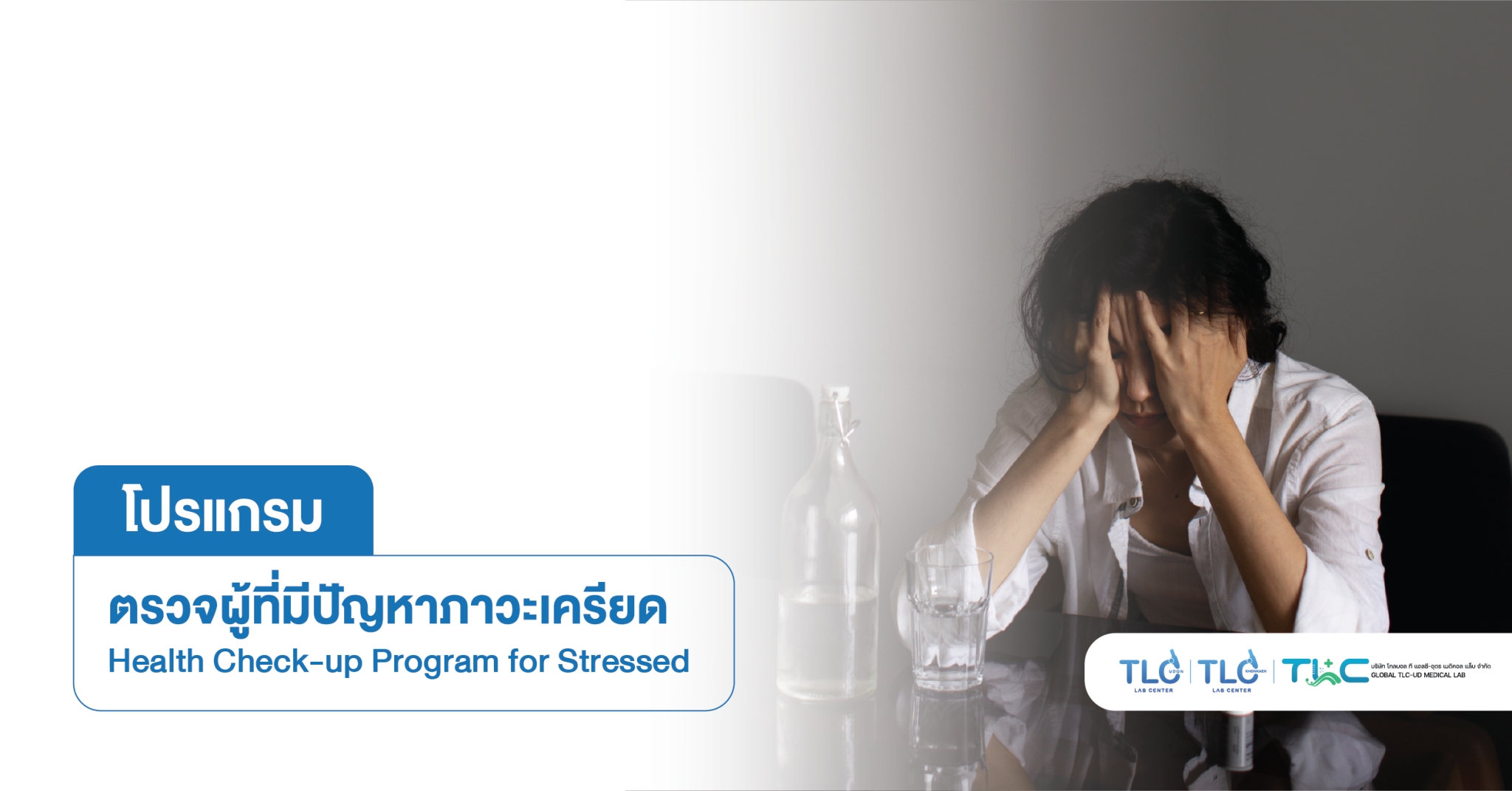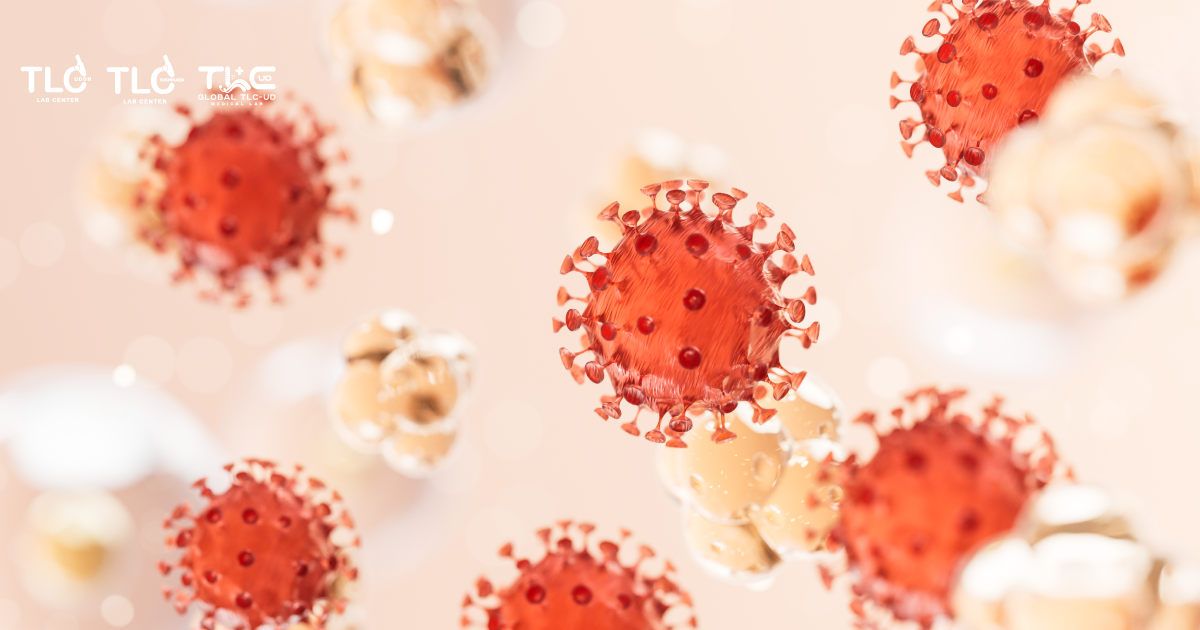Why is good mental health important for all of us?
Mental health. Nowadays, it has become a topic that people talk about and pay more attention to. It is no different from choosing a good meal, exercise. Insomnia or difficulty falling asleep is not helpful. Rushing life, insomnia, loss of appetite, leading to a lack of concentration affects the function of hormonal variables. Neurotransmitters are impaired, resulting in psychiatric diseases and poor health or subsequent illnesses.
What is mental health?
Good mental health is a state in which the mind is happy and can adapt to solve problems. Then we can carry out daily life and provide good feelings for both yourself and others. They have emotional maturity in society and a changeable environment without feeling awkward (Source: World Health Organization. Retrieved 3 February 2013)
If we have good mental health, we will feel happy, be confident and full of hope It makes us want to bond with others to create good things for society. By having good mental health, we will have inner peace and be able to live a meaningful life.
Why is mental health important to us?
Mental health is just as important as physical health because the mind and body work together in a relationship. We cannot separate the mind and body. If our mental health is bad, it will affect and manifest our physical health as well.
How can good mental health help us?
Having good mental health makes life easier.
- It helps us to be calm and controlled. It helps us become calm too
- when faced with dislikes, dissatisfaction, and enables us to deal with the inner state of mind.
When losses occur, it can solve the crisis from the unexpected changes in life. Good mental health helps us cope with the fears and uncertainties of life. Good mental health allows us to maintain good relationships with others. It helps us learn and understand the emotions of others.

How does poor mental health affect our lifestyle?
Poor mental health affects thinking. It often affects attitudes and living in a society, which can lead to minor to severe illnesses, which affect the quality of life. This can lead to self-doubt. They have no driving force and cannot be self-reliant.
- Mental illness negatively affects mental health and can be related to many factors, such as:
- Genetic
- Stress, anxiety
- Physical or psychological abuse
- Or experience a traumatic event.
Mental illness can occur in both short-term and the long-term. Some mental illnesses that occur over a long period of time in a person are even more severe if not well cared for and treated properly.
- Deteriorating mental health and being left untreated will lead to chronic physical illnesses, and lack of support or improper care will result in frequent illnesses that affect the quality of life. This makes them inefficient.
Mental health is a measure of how effective we are in coping with stress, including maintaining relationships with people in society.
Common mental health problems
1. Anxiety: Anxiety is a normal part of life. If the anxiety persists, it will affect daily life, which is a mental health problem. Anxiety disorders include:
- Panic attacks
- Obsessive Compulsive Disorder
- Post-Traumatic Stress Disorder
- Fear, paranoia, fear of socializing, fear of being stared at, or judged by others.
Psychotherapy can help reduce symptoms. However, in some cases, medication may also be required.
2. Mood disorder : Some often have symptoms of unstable mood, abnormal mood ups and downs, happy moments, sad moments, difficulty managing emotions on their own. Mood disorders that are common in society are :
- Depression
- Bipolar Disorder
- Dysthymic Disorder: Symptoms may be mild but chronic for years.

3. Psychotic Disorders : Mental disorders. If it becomes severe, it causes distorted thoughts, inability to distinguish or perceive what is real. If not properly cared for, it will result in worsening symptoms, such as :
- Seeing hallucinations
- Hearing issues
- The senses are distorted, including images, tastes, smells, and sounds are disconnected from the real world, and have deviant thoughts, strange thoughts, and may have harmful effects on themselves and others.
Psychotic disorders should be treated with medication in conjunction with psychotherapy, such as schizophrenia or delusional disorder.
There are various causes of schizophrenia, such as :
- Abnormal brain function.
- The brain receives accumulated toxins.
- Suffering from neurological (brain) diseases, causing hallucinations, optical illusions, and ringing in the ears.
In addition, being abused – physical and mental abuse – can also cause schizophrenia.
The use of stimulants, drugs, alcohol, as well as sudden withdrawal from schizophrenia treatment, also contribute to the disorder of the brain system. It can affect mood swings.
4. Eating Disorders : It is an illness that comes from the mind. From the outside, this disorder may seem like a food-focused issue, but in fact, this disorder is caused by a deep-seated problem in the mind about being forced to control in various ways. Treatment should be psychotherapy to help modify thought processes, attitudes and problematic behaviours.
5. Personality disorders. : Personality disorders are abnormal mental health problems in terms of thoughts, behaviours, and lifestyles. Treatment should be psychotherapy, as above.
The most common characteristic is that there are symptoms of diseases related to.
- Irritability
- Anger, being unable to control themselves.
- Emotional instability
- Severe aggressive behaviour.
- Having a personality that likes to control others.
- Antisocial behaviour or a related multiple personality disorder that is often separated from the real self, or creates other identities.
Common personality disorders such as borderline, narcissistic, antisocial, dissociative, etc.

How to promote good mental health?
- Train yourself to see the world in reality. Be rational and practice positive thinking. The benefits outweigh the negatives, helping you not to get too anxious.
- Take care of your mind to be calm and relaxed, such as meditating, practicing your mind to be calm and in the present, and always being aware of the changes that are happening in yourself.
- Do not set too much hope. Rehearse to deal with disappointment If you have to face a necessary situation,
- Able to control their emotions well, no matter what the situation is.
- Have a good understanding of themselves and others.
- Exercise regularly for at least 3-4 days/week for 30-60 minutes at a time to help increase the function of neurotransmitters from impairing.
- Eat all 5 food groups to prevent the body from being deficient in nutrients, which are important in the production of neurotransmitters in the brain, such as magnesium, vitamin B, supplementation with probiotics that are good for the intestines, from curd milk, yogurt, to help balance the intestines from fungi, yeast, and bacteria, which if accumulated in large amounts, will result in stress in the body, not staying up late, and sleeping effectively.
- Get enough rest for 6-8 hours a day to help strengthen the recovery process while you are sleeping.
อ้างอิง
- “Mental health: strengthening our response”. World Health Organization. August 2014. สืบค้นเมื่อ 4 May 2014.
- Edmonds, David Matthew; Zayts-Spence, Olga; Fortune, Zoë; Chan, Angus; Chou, Jason Shang Guan (2024-03-04). “A scoping review to map the research on the mental health of students and graduates during their university-to-work transitions”. BMJ Open (ภาษาอังกฤษ). 14 (3): e076729. doi:10.1136/bmjopen-2023-076729. ISSN 2044-6055.
- who.int [Mental health]
- healthdirect.gov.au [mental-illness]
- quebec.ca [psychotic-disorders]















